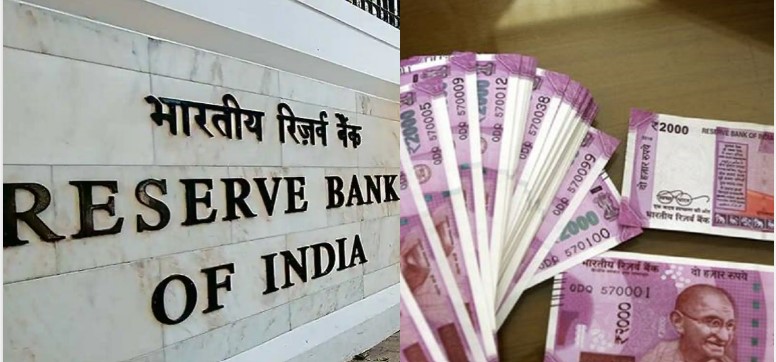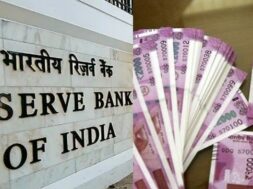
The Rs. 2000 bonanza: Bank deposits may go up, says SBI report
Virendra Pandit
New Delhi: With the Reserve Bank of India (RBI)’s decision in May to withdraw the Rs. 2000 currency notes from circulation as part of currency management, the deposits in banks are expected to go up sharply, the country’s largest lender State Bank of India (SBI) said in a report.
Within a fortnight from May 23, when the people started depositing the Rs. 2000 notes back into the banks, nearly half of the total number of these notes had returned to the system.
According to an SBI economic research report, Ecowrap, not only would the banks’ deposits go up by September, but the withdrawal of these largest denomination notes would also reflect in repayment of loans, increased consumption, boosting RBI retail CBDC (Central Bank Digital Currency), and a possible GDP hike, the media reported on Monday.
“The ‘precision strike’ by RBI hits the right notes on multiple counts, taking pressure off substantially from near war-like quest for deposits from the banking system while also smoothening the bias for higher interest rates going forward,” said Soumya Kanti Ghosh, Group Chief Economic Adviser, SBI.
Additionally, the move effectively anchors the surge in incremental C/D (Credit-Deposit) ratio, nearing pre-pandemic levels, by filling the coffers and keeping banks ready to meet funding needs from diverse sectors, the report said.
SBI’s Economic Research Department (ERD) assessed that the short-term rates (commercial papers or CPs) should ease from the upper crest, in alignment with smoothening of benchmark yields while CDs (certificate of deposits) raised by banks to fund the credit/investment demands should also find a rational footing.
“With overseas markets remaining choppy (further consolidation of mid and small-size banks in advances economies looks certain going ahead with elevated US Federal Reserve rates distorting the flimsy equilibrium of yesteryears), Indian banks should get more elbow room to meet the demands from the corporates to fund their expansion plans through a mix of credit facilities,” Ghosh said.
Deposit in the banking system through corporates is witnessing smart traction, majorly through bulk deposits, as better returns with liquidity and safety have made bank deposits a favorite alternative for corporates from diverse strata, including PSUs and NBFCs, Ecowrap said.
It said RBI’s retail CBDC project (e-RUPI) should be the ultimate beneficiary of this tactical move as it transitions from a beta-testing phase in the CUG (Close User Group) to hit the streets (going by the preparedness of stakeholder banks to onboard select merchants and retail individuals in the real-time payment landscape through their dedicated apps).
The absence of higher denomination notes should propel faster adoption of e-RUPI for merchant transactions, concurrent with physical fiat currency.
The ERD expects Q1 (April-June) FY24 GDP growth at about 8.1 percent with an upward bias because of the impact of the Rs. 2,000 notes withdrawal. “This reinforces our projection that FY24 GDP could be higher than 6.5 percent, basis the RBI estimate,” Ghosh said.
In value terms, the share of Rs. 2,000 denomination notes (at Rs.3.62-lakh crore) was at 10.8 percent as on March 2023. Going by the current trend on the return of these banknotes, 85 percent of these notes (Rs. 3.08-lakh crore) will come back into the banking system as deposits and the rest (Rs. 54,000 crore) will be exchanged across the counter.
As per ERD’s assessment, Rs. 92,000 crores each will be deposited in the current account and loan accounts, and Rs. 1.23 lakh crores in the current account.
About 60 percent of the Rs. 2,000 bank notes that have been deposited in the savings account will be withdrawn, resulting in an immediate consumption of about Rs. 55,000 crores.
Consumption boost, in the long run, is estimated at Rs. 1.83-lakh crore through the marginal propensity to consume multiplier.














